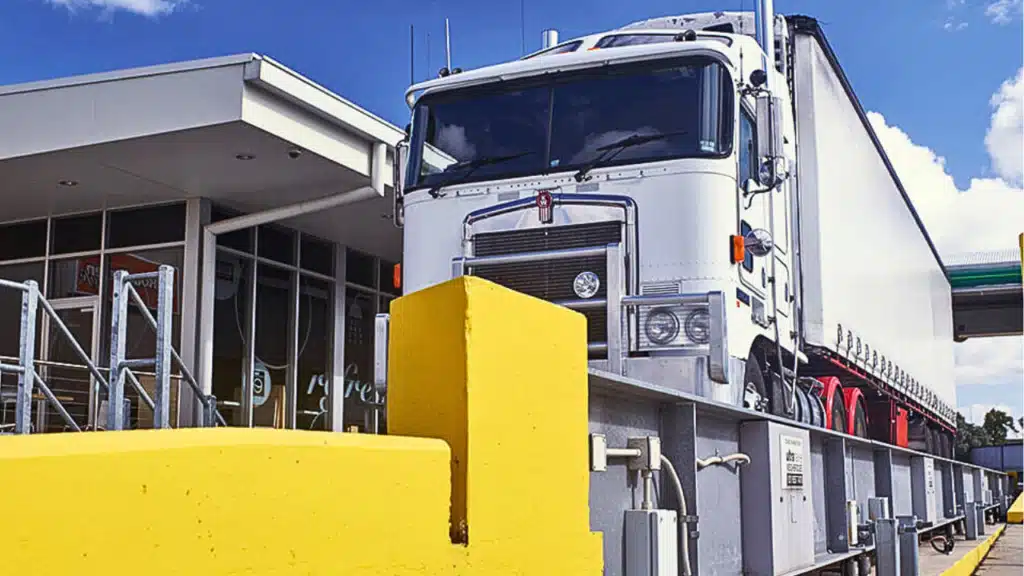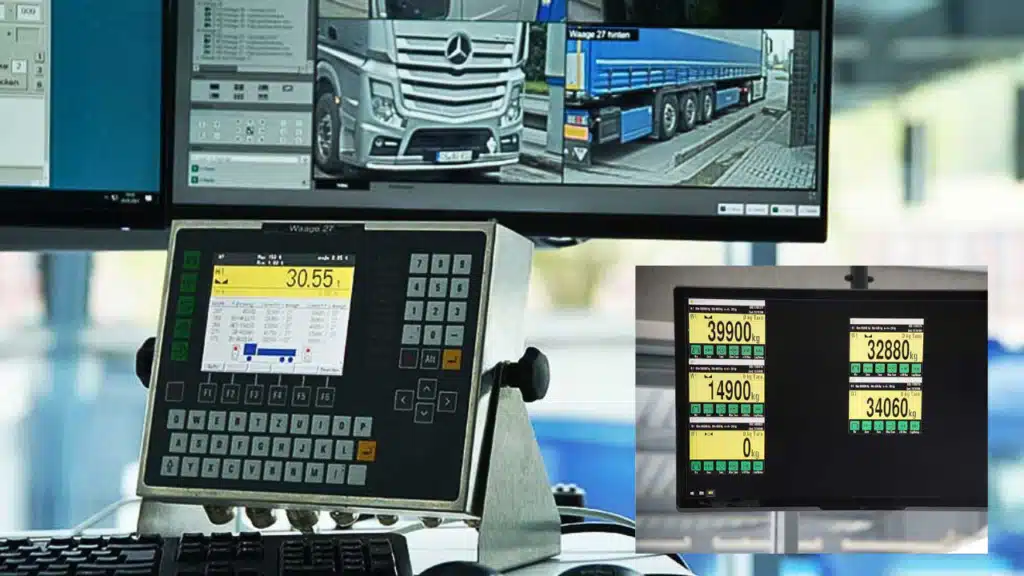A truck scale, also known as a weighbridge or weigh station, is a large and heavy-duty weighing system designed to measure the weight of vehicles such as trucks, trailers, and other heavy-duty vehicles. These scales are commonly used in industries that involve transportation, logistics, and the movement of bulk materials.
Here’s an overview of truck scales and their significance in industries:

Purpose and Applications:
Weight Verification: Truck scales are used to accurately measure the weight of loaded and unloaded trucks. This information is crucial for verifying the weight of goods being transported and ensuring compliance with legal weight limits set by transportation authorities.
Logistics and Inventory Management: Industries such as agriculture, mining, construction, waste management, and manufacturing rely on truck scales to manage inventory and track material movement. Accurate weight measurements help optimize supply chains and ensure efficient use of resources.
Regulatory Compliance: Many countries have strict regulations regarding vehicle weight limits to ensure road safety and prevent damage to infrastructure. Truck scales enable companies to comply with these regulations, avoiding fines and penalties.
Transaction Weighing: In some cases, truck scales are used for commercial purposes, where the weight of goods carried by trucks determines the transaction value.
Key Features and Components:
Platform: The platform of a truck scale is where the vehicle is driven onto for weighing. It is usually constructed using heavy-duty materials such as steel or concrete to withstand the weight of large vehicles.
Load Cells: Load cells are the sensors that measure the weight of the vehicle. They are placed strategically underneath the platform and convert the applied force into an electrical signal.
Weighing Electronics: The electrical signals from the load cells are sent to weighing electronics, which process the data and display the weight information. This can include digital displays, software interfaces, or integration with other systems.
Ramps: To ensure smooth entry and exit of vehicles onto the platform, truck scales often have ramps or approaches.
Security and Automation: Many modern truck scales are equipped with features such as security barriers, traffic lights, and automated control systems to manage the weighing process efficiently.
Weather Protection: Since truck scales are installed outdoors, weather protection measures are important to ensure reliable operation in varying conditions.

Types of Truck Scales:
Pit-Mounted Scales: These scales are installed in a pit so that the weighing surface is at ground level, allowing for easier entry and exit of vehicles.
Surface-Mounted Scales: These scales are installed above ground, making them easier to install and maintain. Vehicles need to climb ramps to access the weighing platform.

Everything in View – More Safety
The scale control station helps to increase safety in the plant through seamless monitoring. Among other things, the staff checks the truck weight that are transferred from SysTec’s IT8000E weighing systems to the W&M approved digital displays in the control room, where the staff is available for drivers in case of questions. A track-and-trace system will also be used to record and control trucks as they enter the facility in order to optimally direct traffic flows: Innovative weighing systems for logistics processes.
In summary, truck scales are essential tools in industries involving transportation, logistics, and bulk material handling. They ensure accurate weight measurements, help with compliance, optimize logistics, and contribute to the overall efficiency of various industrial processes.

